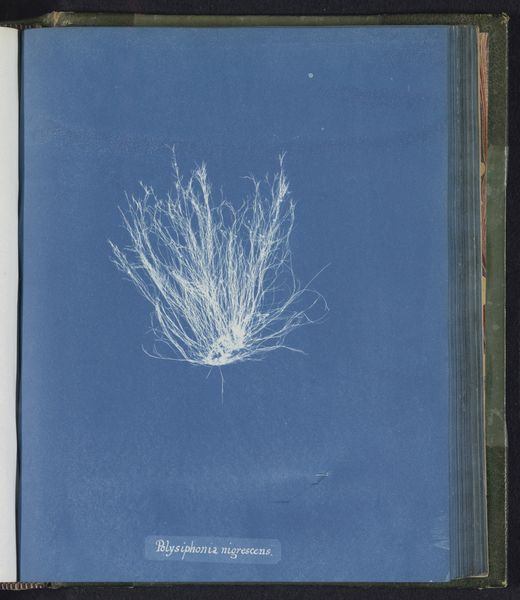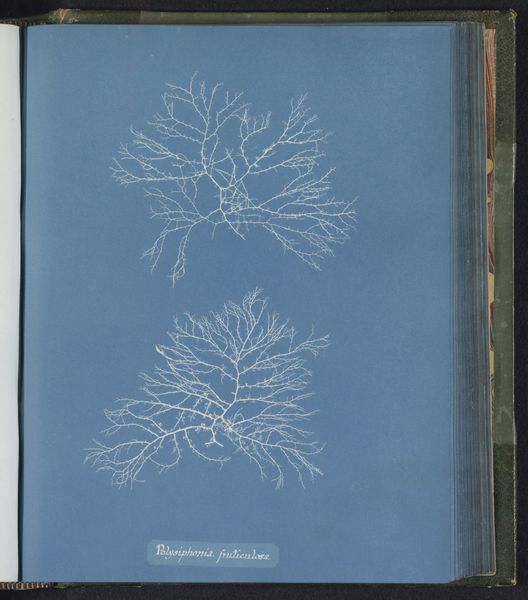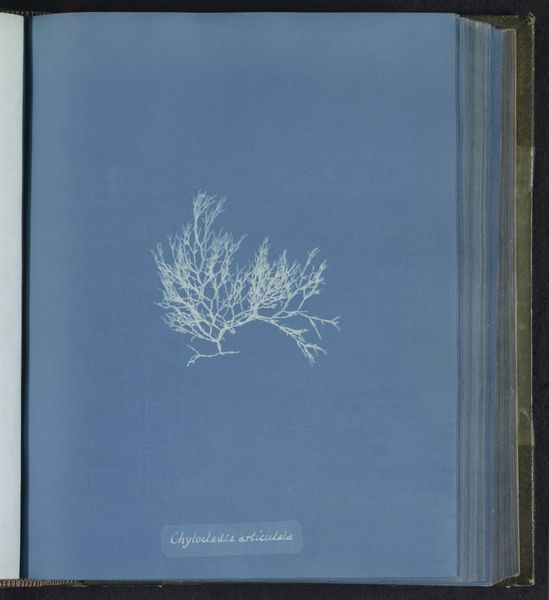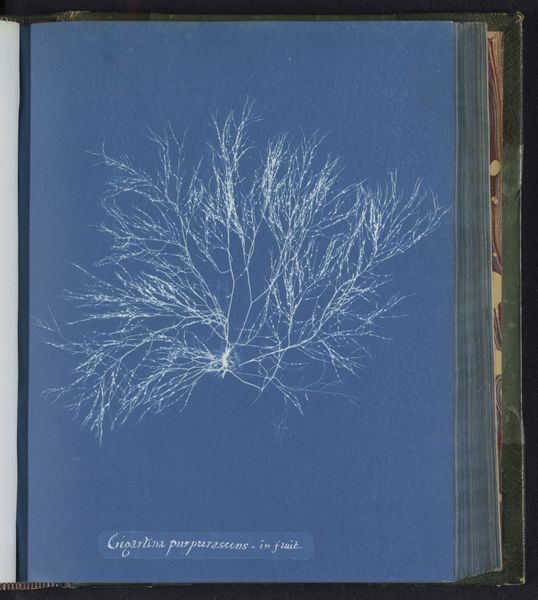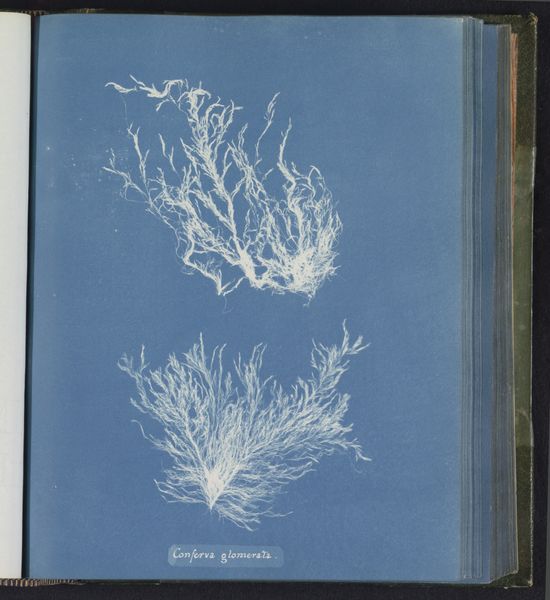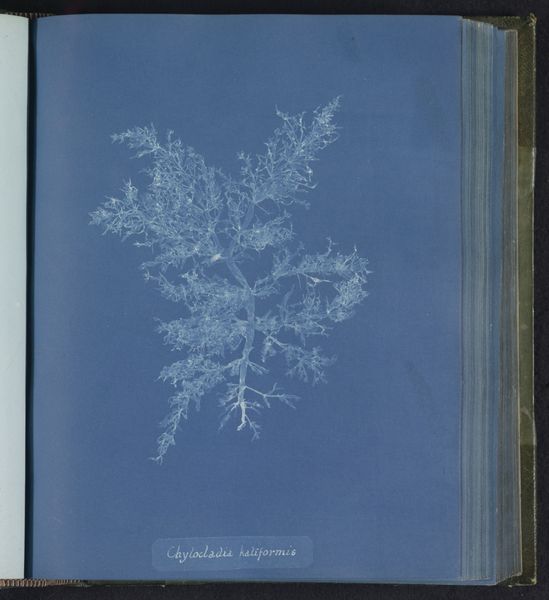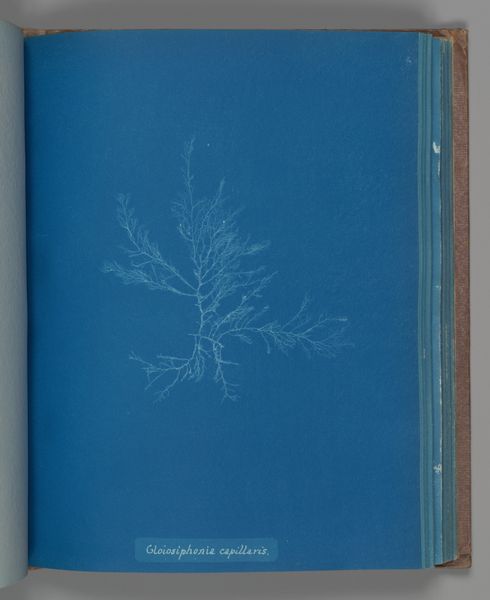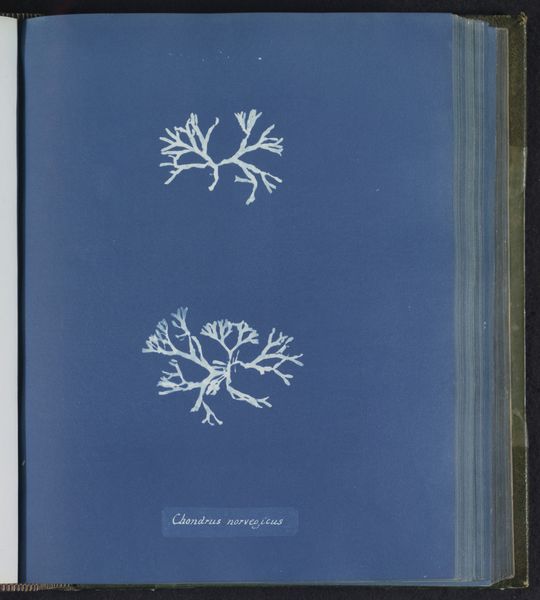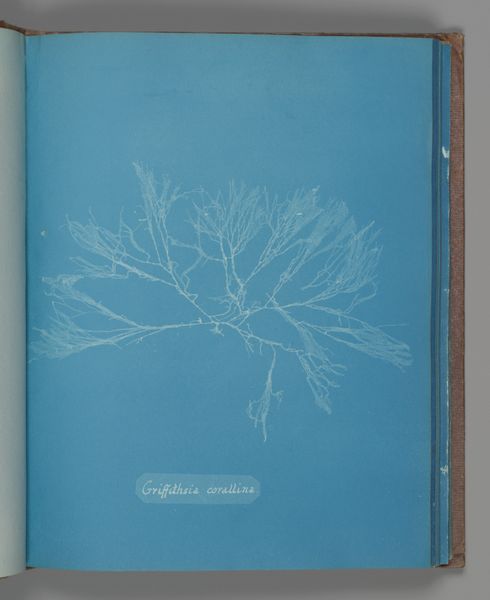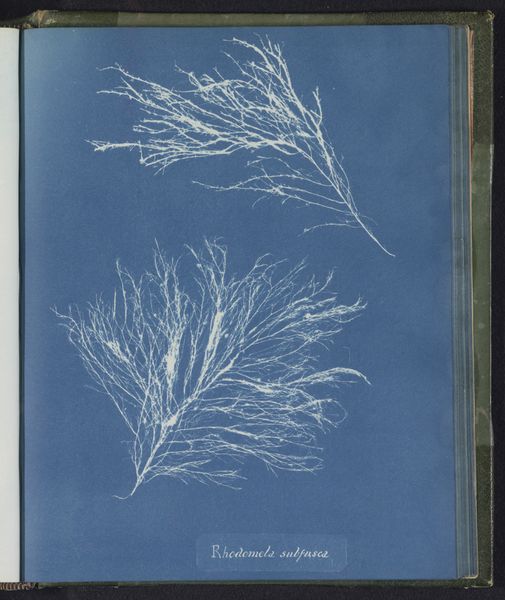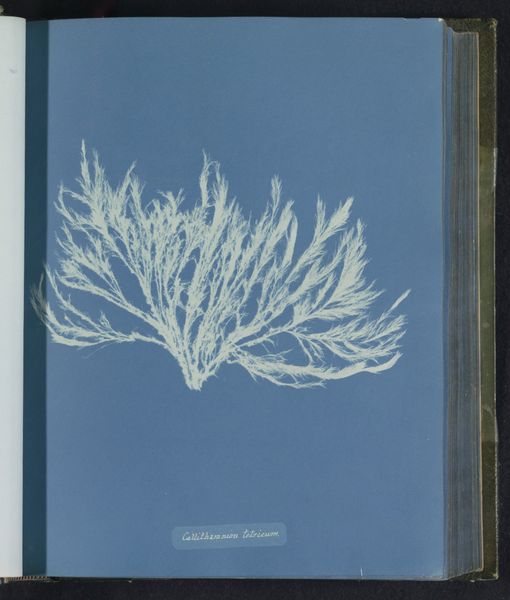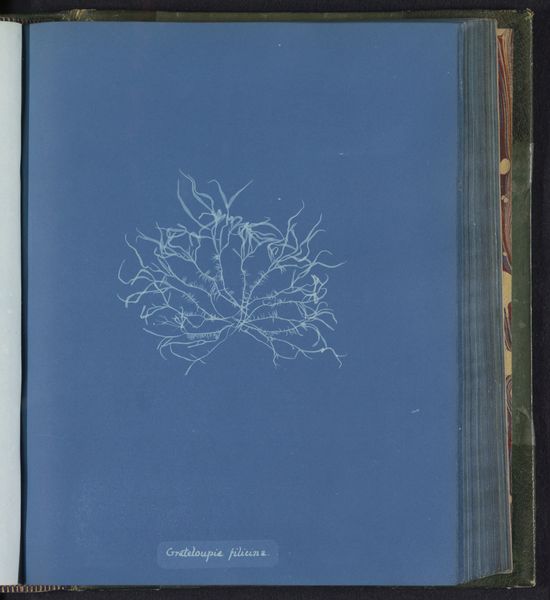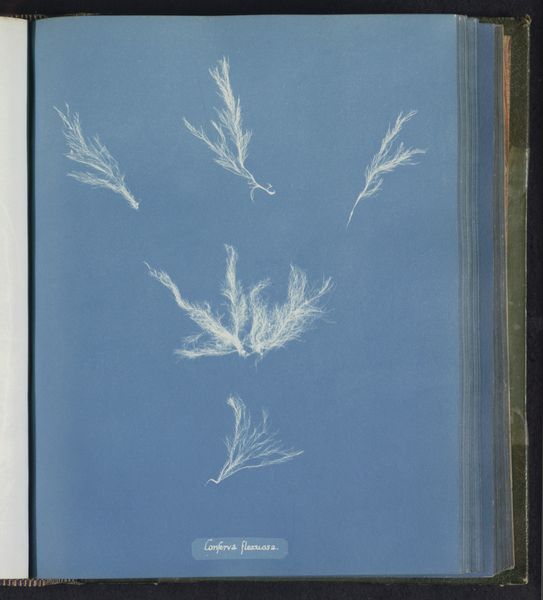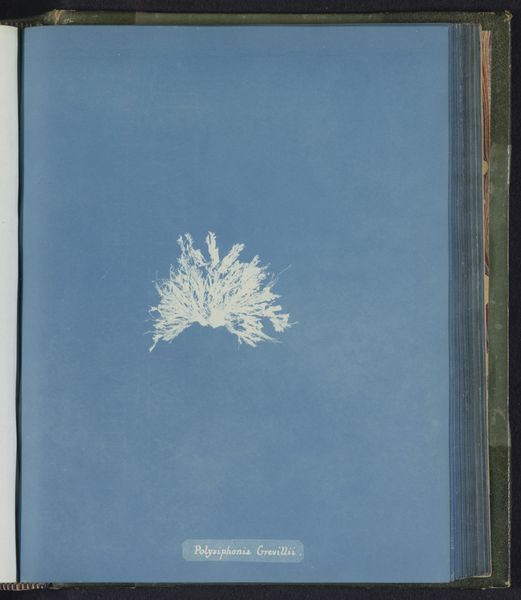
print, cyanotype, photography
#
still-life-photography
# print
#
cyanotype
#
photography
Dimensions: height 250 mm, width 200 mm
Copyright: Rijks Museum: Open Domain
Anna Atkins made this cyanotype of Rhodomela pinastroides in the mid-19th century. It's a photograph, but not one taken with a camera. Instead, Atkins arranged seaweed directly on paper treated with iron salts, then exposed it to sunlight. The cyanotype process, invented only a few years before Atkins made this image, was cutting-edge technology. But it also had a directness, a 'hands-on' quality. The white silhouette of the seaweed contrasts dramatically with the deep blue ground. This 'photogenic drawing' is both a scientific record and a work of art. Atkins was part of a community of scientifically minded people who understood the value of craft processes. Making the image involved a lot of labor; gathering specimens, preparing the paper, carefully arranging the seaweed, and then waiting for the sun to do its work. By understanding the material and the method, we can appreciate how Atkins bridged the gap between scientific accuracy and aesthetic beauty.
Comments
No comments
Be the first to comment and join the conversation on the ultimate creative platform.
